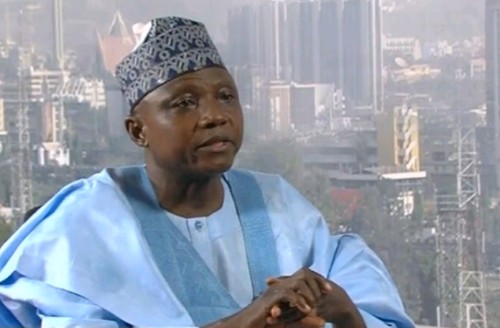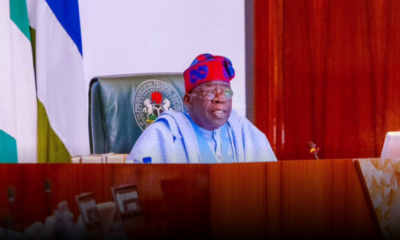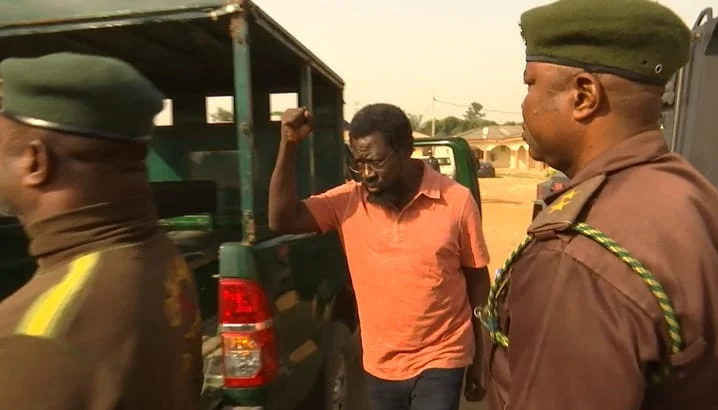The presidency says there is now evidence that the claims of a missing N89.09 trillion from stamp duty “appears to be false”.
Garba Shehu, senior special assistant to the president, said this while providing details on the stamp duty controversy in a statement on Tuesday.
Gudaji Kazaure, member of the house of representatives on mismanagement or embezzlement of stamp duty funds, had accused administration officials of “cover-ups” in the investigation of the funds.
In a recent interview, Kazaure, who said he is also the secretary of the presidential committee on the reconciliation and recovery of all stamp duties, alleged that the Central Bank of Nigeria (CBN), the office of the secretary to the government of the federation (OSGF), and the protocol department of the state house, conspired to prevent him from briefing President Muhammadu Buhari on the findings so far made.
The lawmaker alleged that he was blocked from meeting Buhari in order to brief him on progress reports on efforts to trace trapped N89.09 trillion.
HOW THE COMMITTEE WAS FORMED AND DISSOLVED
But providing details on the issue, Shehu explained that President Muhammadu Buhari came into office in 2015 to find that a law, which stipulated for the collection of a “token on banking transactions existed but was not being correctly implemented”.
He said this anomaly arose because certain characters apparently formed a cartel with collaborators in the Nigerian Postal Service (NIPOST) and were allegedly “collecting and pocketing this money”.
Soon after, according to Shehu, a non-government organisation posited to the administration that the Nigerian government had lost the sum of over N20 trillion to the Nigerian Inter-bank Settlement System ((NIBSS) between 2013-2016 in this regard, claiming that the said sum could be recovered and paid back into the government coffers.
“The consultants asked to be paid a professional fee of 7.5 percent and were placed under the supervision of the secretary to the government of the federation (SGF),” he said.
“Following the lack of progress in the promised recovery, the late chief of staff to the president, Abba Kyari, wrote on March 8, 2018 to the SGF conveying a presidential directive that following the lack of progress and several expressed concerns received, the activities of the consultants be discontinued.
“In the aftermath of this dismissal, the consultants sued the government.
“A court of competent jurisdiction subsequently ruled in favour of the government.”
Arising from the outcome of the litigation and the well-known controversy on the legally responsible agent for collecting this levy, Shehu said the administration went to the national assembly and caused an amendment to the law and removed NIPOST from the duty of its collection.
He said having lost a potentially “lucrative” line of “business,” the sacked “characters returned to the drawing board to formulate one form of trick or another to intimidate the government but the vigilant teams of the administration kept them at bay”.
Shehu further explained that they returned lately to the government through “honourable Muhammadu Gudaji Kazaure with a plan to track the so-called lost stamp duties with the erstwhile consultant as chairman and honourable Gudaji as secretary”.
“When it emerged that the petitioner and lead consultant of the committee the President had dissolved via the late Abba Kyari’s letter of March 28 had masqueraded himself and re-emerged as the chairman of the new recovery committee championed by the Hon. Gudaji, the President rescinded the approval he gave and asked that it be stopped from operating under the seal of his office,” Shehu further explained.
“In addition to this committee being chaired by a petitioner, there were also other concerns relating to natural justice and fair hearing in having the chief justice of the federation as a committee member and a serving member of the house of representatives as secretary, which are not in line with section 5(1),(a)&(b) of the 1999 Constitution of the Federal Republic of Nigeria (as amended).
“Once the president rescinded his approval to constitute this committee, [it] lost all legitimacy.
“Arguments have in recent days been flying left and right over the rightfulness of a committee being dissolved.
“People are entitled to hold opinions. But these opinions do not change the fact that under our constitution, the power of the president to appoint and remove persons or groups is duly entrenched and unless such powers are shared with the parliament, the President can hire and fire literally at will, and in line with the law.”
KAZUARE’S MISSING N89 TRILLION CLAIM FALSE
Therefore, the president’s special assistant said there is evidence to debunk claims Kazaure’s claims on the missing funds.
He said the same set of consultants claimed in 2016 that there was N20 trillion to be collected, but “it was found to be false”.
“To go back to the main issue though, it is now evident that the consultants and petitioners’ claims of a missing N89 trillion from stamp duty appears false and a figment of their malicious imaginations,” Shehu said.
“The entire banking sector deposit is not even up to half of N89 trillion.
“Indeed, if the federal government can find N89 trillion, it can pay off all its debt, both foreign and local currency and all state government debts and still have over N10 trillion left.
“So, the claim by these so-called consultants and the disbanded committee is totally ridiculous and a complete mockery.”
Meanwhile, in a recent a video clip in Hausa and a press release in English, Kazaure had asked Shehu to answer pertinent questions relating to the matter.
Kazaure had asked for the sources of the $171 billion in the CBN’s I&E window account; N23.4 trillion CBN gave as a loan to some banks; and N13 trillion loan to the federal government from FMDQ;
In response, Shehu said: “To my knowledge, the CBN-established investors and exporters (I&E) window is a foreign exchange trading platform where banks and other authorised dealers can buy or sell foreign exchange. These trades are recorded by the CBN daily and reported as turnover or activity in the market.”
“Contrary to Hon. Kazaure’s assertion, the I&E window is NOT an “account” where foreign exchange is deposited. It is simply a platform for trading foreign exchange. As of April 2020, the total amount of foreign exchange traded (either bought or sold) in the window was about $171 billion. The size of this amount suggests that there is adequate liquidity or availability of foreign exchange and that anyone who wants to buy or sell would easily find a counterparty to trade with. The amount does not mean that we have $171 billion stacked away in some vault or saved in any account.
“Note that both the CBN and authorised dealers are free to bring foreign exchange to the window, and in fact, the CBN is not the major seller of foreign exchange in that segment of the market.”
N23 TRILLION CBN LOAN TO BANKS BASELESS
on the N23.4 trillion loan the apex bank was to have given some banks, Shehu described the lawmaker’s assertion as “baseless”.
“The CBN is best placed to respond to this question though I must say the assertion itself is both baseless and misleading. The total balance sheet of the CBN is not anywhere near N23 trillion. So how can it give such an amount in loans to any or some banks?” he said.
Also speaking on the source of the FMDQ loan to the federal government, the senior special assistant to the president, quoting data from Debt Management Office (DMO) said the total amount of Nigeria’s domestic debt as of September 2022 is N21.6 trillion.
He asked if Kazaure suggesting that a “small company in Lagos holds over 60 percent of Nigeria’s domestic debt”.
“More also, of the N21.6 trillion domestic debt, only N4.5 trillion are in treasury bills? How then can a company in Lagos hold more treasury bills (N13 trillion) than the entire treasury bills issued by the federal government? For the avoidance of doubt, I also took time to reach out to the FMDQ (Financial Markets Derivative Quotes) and understand from their audited financial statements that their holdings of FGN treasury bills is just N7.99 billion as of December 2021,” Shehu said.
However, he said he could not provide a response to Kazaure’s enquiry on the ‘total equity of CBN and its national budget’.
“Anyone who understands this question should provide an answer,” Shehu said.
“I can offer this information: on an annual basis and in line with the fiscal responsibility act, the CBN transfers 80 percent of its operating surplus to the federal government as part of the budget revenues. In the last six years, this contribution has amounted to over N150 billion.
“Let me inform, that Mr. President has not completely ignored these matters. Indeed, a duly authorised committee under the attorney-general and minister of justice, Abubakar Malami (SAN) is working to reconcile, recover and transfer all stamp duties into stamp duties central account.
“The work is ongoing, it is not finished yet and the President will continue to show his keen interest in the matter of stamp duty collection.”
Credit: The Cable

 BIG STORY2 days ago
BIG STORY2 days ago
 BIG STORY4 days ago
BIG STORY4 days ago
 BIG STORY5 days ago
BIG STORY5 days ago
 BIG STORY3 days ago
BIG STORY3 days ago
 BIG STORY4 days ago
BIG STORY4 days ago
 BIG STORY3 days ago
BIG STORY3 days ago
 BIG STORY2 days ago
BIG STORY2 days ago
 BIG STORY1 day ago
BIG STORY1 day ago
























